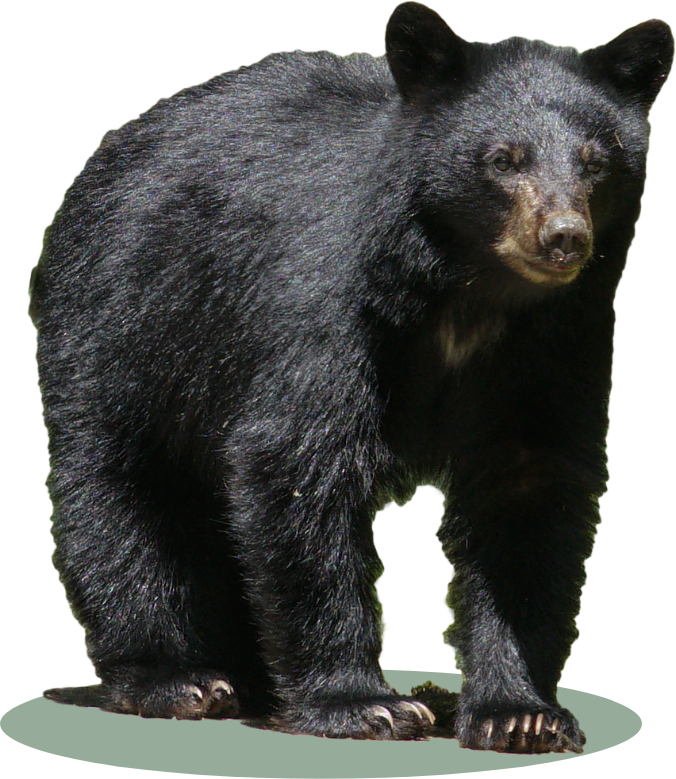
Bears naturally pass through neighbourhoods using creeks, rivers, and green spaces
in search of food and safety. They often feed on natural foods in residential areas, and vulnerable bears stay closer to humans to avoid dominant ones. Bears that find food from people are at increased risk of being killed by authorities. Relocation is not the solution: if unnatural foods remain, another bear will soon find them. Sadly every year bears are shot on the North Shore, as well as being hit by cars
Common Attractants
Simple actions can reduce a bear’s reason to stay in the neighbourhood. Unnatural food sources keep bears active in late winter and can prevent denning altogether.. Manage attractants year-round—garbage, organics (yard and food waste), bird feeders, and fruit trees are the most common. Follow these steps to make your home less appealing to bears.
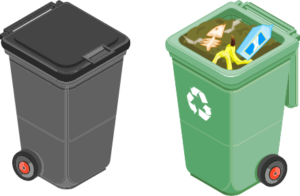
Garbage & Organics
Garbage and organics attract bears, leading to increased activity and human-caused bear deaths. Reduce odours and secure waste to keep bears away.
- Store garbage and organics inside your garage or sturdy shed, not just in lockable carts.
- Use bungee cords to keep carts upright if storing in a carport.
- Freeze strong attractants (meat, grease, fish, bones) and add them to waste only on collection day.
- Flush solids from used diapers, wrap well and store inside until collection morning.
- Wrap food scraps in paper to reduce odour and help keep carts clean.
- Wash carts regularly with water and vinegar.
- Bears return if they find food—keep carts empty and clean to discourage repeat visits.
- No waste should be left curbside overnight—follow municipal guidelines.

Bird Feeders
Bird seed and suet are highly attractive to bears due to their high calorie content. Hummingbird feeders are also a favourite.
- Avoid using bird feeders year-round in Bear Country.
- Bears can climb decks and roofs for feeders, it is extremely difficult to hang a feeder that a bear cannot access.
- Removing feeders at night is ineffective—bears are active during the day as well.
- Scattered seed attracts bears; if feeding birds, use a small amount on a plate while you are outside.
- Instead, attract birds with native plants, birdbaths, sandboxes, or nesting boxes.

Fruit Trees
Fruit trees attract bears, and they will return for an easy food source..
- Avoid planting fruit trees unless you can manage them.
- Prune trees for fewer, better-quality fruits and harvest all fruit, even from high branches.
- Pick fruit before it ripens and let it ripen indoors.
- Collect fallen fruit daily and store it securely.
- Use and maintain electric fencing to protect trees.
- If you don’t use or manage your fruit trees, consider removing them.
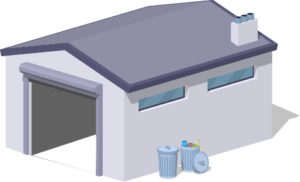
Garage or Home
Bears may enter open doors, screens, or garages searching for food or shelter, often leading to their death.
- Keep doors, ground floor windows and garages closed unless you are nearby.
- Secure garage doors when not in use.
- If a bear enters, stay calm, speak softly, and slowly move to safety. Ensure the bear has a clear exit.
- Once safe, use a firm voice to encourage the bear to leave.
- If a bear finds food, it will return—secure all food and entry points.

Teaching Bears
Bears are intelligent and can learn to avoid certain areas. Set clear boundaries by removing food attractants and safely moving them along if they enter your property.
Loud noises like air horns may not be effective—bears respond better to a firm voice, eye contact, and confident body language from a safe spot. If a bear is eating, wait for them to finish, then use your firm voice to encourage the bear to leave. Be patient and persistent.
When the bear responds, soften your tone to encourage this behaviour. Avoid bear bangers—they’re unsafe and ineffective. The goal is to guide, not scare, bears.

What to Do If a Bear Is Resting
in the Neighbourhood
Bears may rest in yards or trees, especially in quieter residential areas. Here’s how to respond safely and respectfully:
- Let them rest – If a bear is sleeping on your property, give the bear space and don’t disturb their nap.
- Encourage movement safely – once the bear stirs, use a firm voice from a safe spot (deck or window) to guide the bear away.
- Avoid crowding trees – bears won’t climb down if people are nearby. Give them time and space to leave on their own.
- Be patient – bears may wait until dark or a quiet moment to move on.
Respecting their need for rest helps prevent conflicts and keeps both bears and people safe.
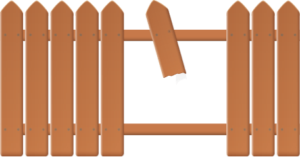
Preventing Bear-Related Property Damage
Bears occasionally cause damage while traveling through neighbourhoods, often breaking fences or accessing sheds and garbage enclosures. In nearly all cases, something highly odorous—like meat, fish, grease, diapers, pet food, or bird seed—was stored inside. To reduce the risk:
- Store attractants properly – keep odorous items inside your home or a locked, reinforced enclosure (not plastic or wooden sheds).
- Clean and empty enclosures – if a bear has accessed one, remove contents and leave it empty for at least two weeks to discourage return visits.
- Delay fence repairs – bears use the same routes until food sources are gone. Fixing damage too soon may lead to repeat incidents.
- Minimize disturbances – bears may break fences when fleeing from people or vehicles trying to get close for photos. Avoid approaching or harassing them.
- Be patient – bears can be killed for causing property damage. Preventing access to food is the best way to keep both bears and property safe.
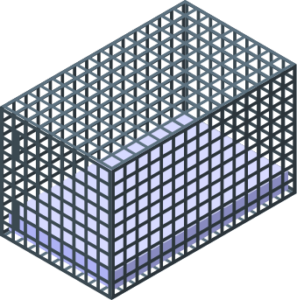
Relocation Is Not the Solution
Many believe bears in BC are relocated to the forest, but this is rarely the case. In June 2021, BC Conservation Officers killed 75 black bears—only one was relocated.
Relocation is stressful for bears and usually unsuccessful. They may return, struggle to find food, or be killed by other bears in the new location. They can return from hundreds of kilometres away. When a bear is removed, another will quickly takes their place if the attractant is not removed.
The real solution is prevention—learning about bear behaviour and reducing attractants around homes, campsites, and picnic areas. Bears are part of our community, and coexistence is key.
Other Commonly Reported Attractants

Fridges, Freezers, and Coolers
Bears can smell frozen food and will access fridges, freezers, or coolers left outside. Always store these inside your home or secure garage.
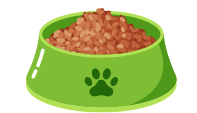
Pet Food
Bears are attracted to pet food, so always feed pets indoors with doors closed. Store pet food and treats inside your home or secure garage.

BBQ Grills
Clean your BBQ grill on high heat after each use, and always store utensils and condiments inside. Never leave food unattended while cooking outside. Clean the grease trap after every use. Store the grease in the freezer until collection day.
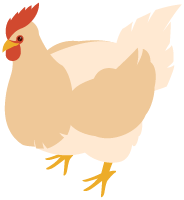
Chickens
Backyard chickens and their feed attract bears. Use electric fencing around coops and store feed indoors. Supervise free-roaming chickens.
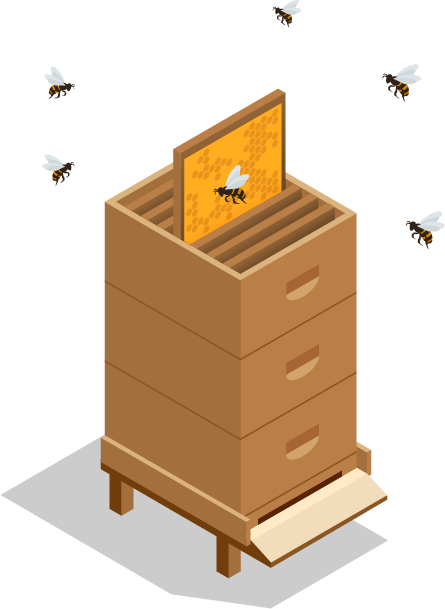
Beehives
Bears love honey and bee larvae. Install and maintain electric fencing around your beehive and check it regularly, especially in winter.

Vehicles
Bears may enter vehicles and cause damage. Keep vehicles free of food and garbage, and anything odorous such as air fresheners. Keep doors locked and windows closed to prevent access.

Food Deliveries
Don’t leave food outside for long. Bears can find it quickly. Arrange for deliveries when you’re home or use a secure location to store items.
Backyard Compost
Avoid adding eggshells, grains, pasta, rice, meat, fish, bones, oil, fat, grease, and dairy. A healthy compost needs equal parts green (vegetable scraps, grass clippings, coffee grounds) and brown (leaves, sawdust, cardboard). Turn compost every few days to aerate.

Recycling
Unwashed and unsecured recycling can attract bears. Rinse containers and store recyclables in a secure area until collection.
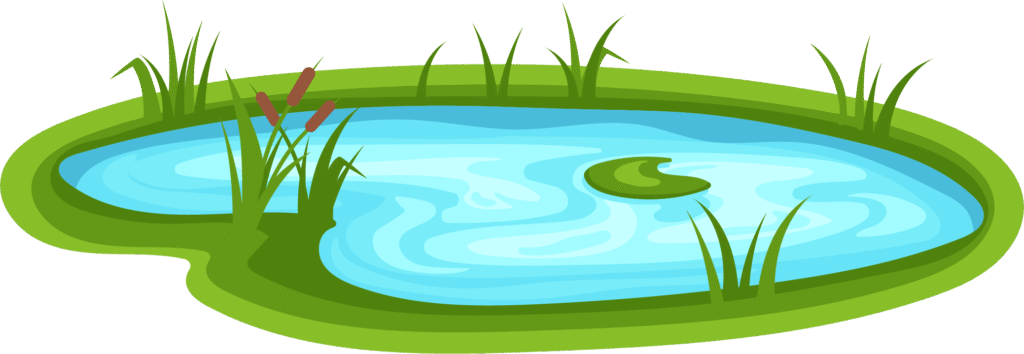
Fishponds
Bears are attracted to fishponds for drinking and cooling off. Store fish food inside and use electric fencing to keep bears away from ponds.

Toys/Inflatables/Hoses
Bears may play with toys or cool off in inflatable pools. Store these items inside your garage or shed to prevent damage.
Pools/Hot Tubs
Bears occasionally use residential pools and hot tubs to cool off. They may be attracted to hot tub covers and other vinyl items.